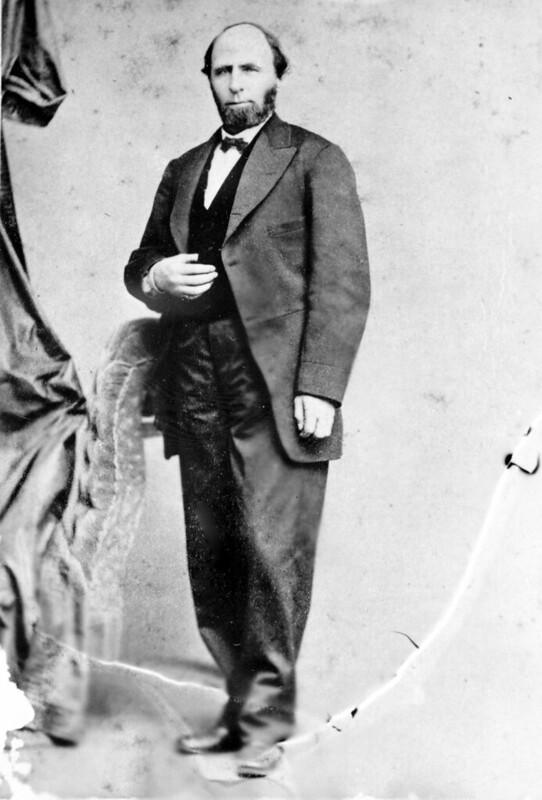Reflections on the Kirk-Holden War
In the time since Governor William Woods Holden's impeachment, many historians have argued that his crusade against the Ku Klux Klan was a failure. Politically speaking, it was. The arrest of Josiah Turner, Jr.—whether ordered by Holden personally or not—turned the tide of public opinion decidedly away from the Republicans, resulting in Conservative dominance in the August 1870 election. The new Conservative majority in the legislature wasted no time in exercising the immense powers handed them by voters, removing Holden from office and forever ending his political career. Early Reconstruction gains, so recently won and tenuously preserved, faltered under the strain of the backlash. By the end of the whole affair, the dream of an interracial democracy in North Carolina lay in serious doubt.
Despite the political costs, however, when examining the effectiveness of Governor Holden's anti-Klan operation itself, the evidence shows that it was moderately successful. Klan activity in Caswell and Alamance counties, and in the greater Piedmont region generally, decreased significantly. Colonel George W. Kirk's men arrested around 100 suspected Klan members for committing crimes such as murder and other violent acts of intimidation.
Contrary to Conservative reports, Kirk's forces had accomplished this feat without a single life lost on either side of the fray. The majority of Kirk's prisoners testified that they had received fair treatment. And though Holden had been officially barred from holding office in North Carolina, he remained a significant influence in Republican Party politics in the state capital up through the early 1880s.
As Holden's life neared its end, the desire to clear his record on the Klan affair grew. Many friends put forth requests for a pardon for Holden from the legislature, but when the issue was threatened with a floor debate, Holden withdrew the request as he did not wish to agitate those who had closed that chapter. In his waning years, Holden appealed to the legislature, requesting a restoration of his political rights. Holden argued that what he did during the anti-Klan campaign he did with the "best and highest interests of the State." He closed the widely-published card passionately affirming to be true what many state citizens had long doubted:
"I am not a party man. Both parties have disowned me. I appeal to you solely on the ground of justice. I have never been an enemy to the State. On the contrary, I have loved her well, and do now, and am her loyal son, though proscribed and banned."
Photograph of Governor William W. Holden. Courtesy of the State Archives of North Carolina.
Additional Readings on the Kirk-Holden War and Reconstruction
Bradley, Mark L. Bluecoats & Tar Heels: Soldiers and Civilians in Reconstruction North Carolina. Lexington, KY: University Press of Kentucky, 2011.
Brisson, Jim D. "'Civil Government Was Crumbling Around Me': The Kirk-Holden War of 1870." The North Carolina Historical Review 88, no. 2 (2011): 123–63.
Folk, Edgar E. and Bynum Shaw. W. W. Holden: A Political Biography. Winston-Salem, NC: John F. Blair, Publisher, 1982.
Foner, Eric. Reconstruction: America's Unfinished Revolution, 1863–1877. New York: Harper & Row, Publishers, 1988.
Harris, William C. "W.W. Holden: In Search of Vindication." The North Carolina Historical Review 59, no. 4 (1982): 370-1.
Harris, William C. William Woods Holden: Firebrand of North Carolina Politics. Baton Rouge and London: Louisiana State University Press, 1987.
Holden, William Woods. Governors' Papers. State Archives of North Carolina.
McGuire, Samuel B. "'Rally Union Men in Defence of your State!': Appalachian Militiamen in the Kirk-Holden War, 1870." Appalachian Journal 39, no. 3/4 (2012): 294–323.
Raper, Horace W. William W. Holden: North Carolina's Political Enigma. Chapel Hill, NC: The University of North Carolina Press, Chapel Hill and London, 1985.
Trelease, Allen W. White Terror: The Ku Klux Klan Conspiracy And Southern Reconstruction. Baton Rouge, LA: Louisiana State University Press, 1971.
Troxler, Carole Watterson. "'To Look More Closely at the Man': Wyatt Outlaw, a Nexus of National, Local, and Personal History." The North Carolina Historical Review 77, no. 4 (2000): 403–33.
Walder, Christopher. "Civil War and Reconstruction." In A History in Documents: Lynching in America, 95–114. New York: New York University Press, 2006.

